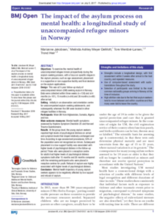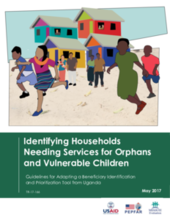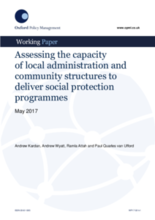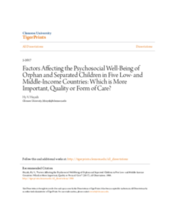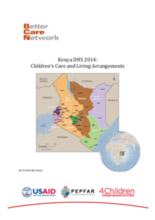Displaying 871 - 880 of 1622
C2P’s Lucy Hillier will talk to Jamie Lachman, founder and director of Clowns Without Borders South Africa, about the “Parenting for Lifelong Health” programme which is being implementing in several countries in the ESA region.
This study examined the mental health of unaccompanied refugee minors during the asylum-seeking process, with a focus on specific stages in the asylum process, such as age assessment, placement in a supportive or non-supportive facility and final decision on the asylum applications.
Lending a helping hand in countries with poor health infrastructure is usually well intentioned—but it can cause serious harm.
This document describes and provides guidelines for countries to implement the Household Vulnerability Prioritization Tool (HVPT), a tool developed in Uganda to identify and prioritize vulnerable households for enrollment in OVC programming.
This working paper assesses the performance of local and community-based structures in Kenya and Zambia in delivering the government social protection systems that they are tasked to support.
This study explored the extent to which components of quality of care predicted psychosocial well-being of orphaned and separated children (OSC), as well as the extent to which these components of quality of care and demographic factors moderated the associations between care settings and psychosocial well-being of orphaned and separated children (OSC).
This brief is part of a series of country briefs which aim to provide an analysis of children’s living and care arrangements according to the latest
UNHCR-RefugePoint is looking for a Child Protection Expert as part of its UNHCR-RefugePoint Collaboration Project.
Article from DailyNews reporting that there are 4,701 children living on the streets of Zimbabwe’s major cities.
Article from The Guardian’s Social Care Network recognizing World Social Work Day and the needs of vulnerable children in Zambia.

